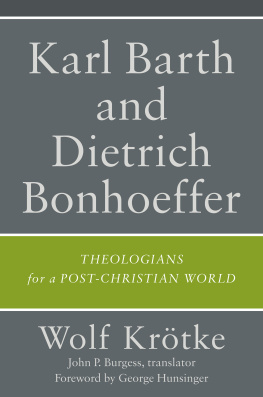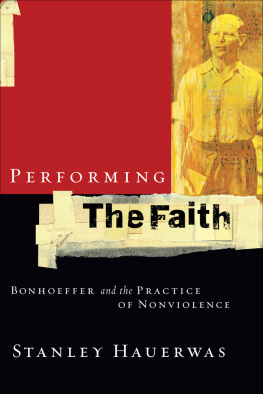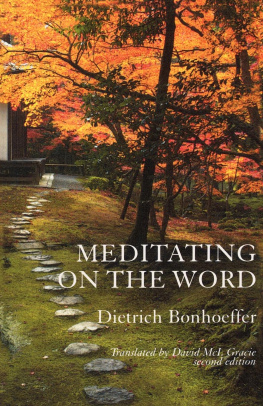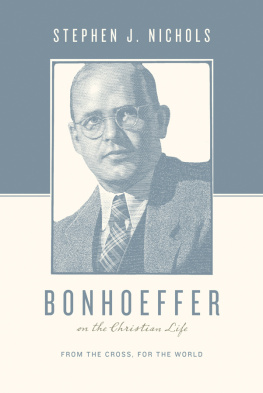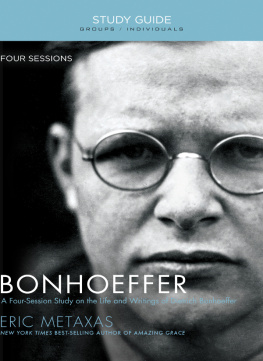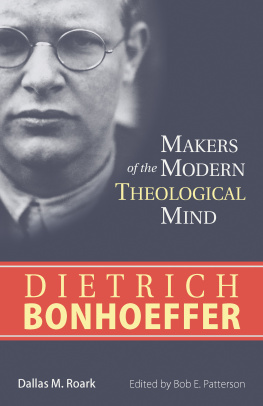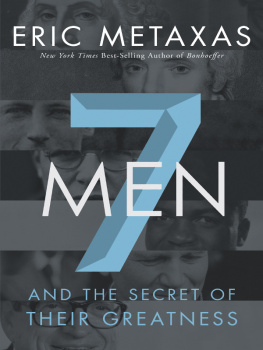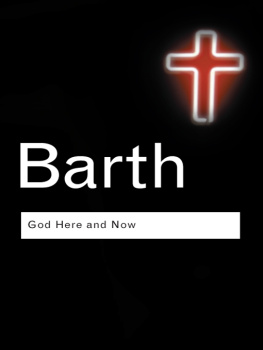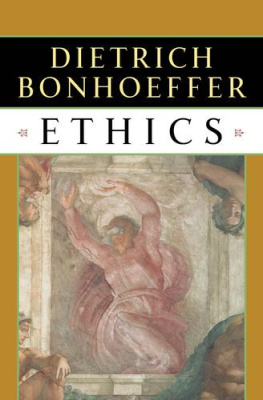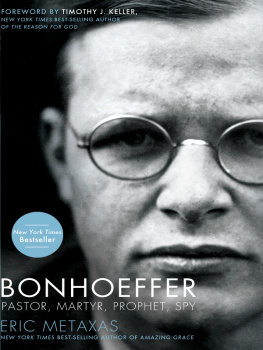All rights reserved. No part of this publication may be reproduced, stored in a retrieval system, or transmitted in any form or by any meansfor example, electronic, photocopy, recordingwithout the prior written permission of the publisher. The only exception is brief quotations in printed reviews.
Library of Congress Cataloging-in-Publication Data is on file at the Library of Congress, Washington, DC.
Scripture quotations are from the Revised Standard Version of the Bible, copyright 1946, 1952 [2nd edition, 1971] National Council of the Churches of Christ in the United States of America. Used by permission. All rights reserved worldwide.
Scripture quotations labeled NRSV are from the New Revised Standard Version of the Bible, copyright 1989 National Council of the Churches of Christ in the United States of America. Used by permission. All rights reserved.
Contents
Cover
Half Title Page
Title Page
Copyright Page
Foreword by George Hunsinger
Translators Preface
Permissions
Part 1 Karl Barth
1. Karl Barth as Theological Conversation Partner: Personal Experiences between East and West, and the Challenges of Barths Theology (2013)
2. Karl Barth: Humanity and Religion (1981)
3. God and Humans as Partners: On the Significance of a Central Category in Karl Barths Church Dogmatics (1986)
4. Barths Christology as Exemplary Exegesis (1996)
5. The Sum of the Gospel: Karl Barths Doctrine of Election in the Church Dogmatics (2010)
6. Man as Soul of His Body: Notes on the Anthropological Foundations of Pastoral Care in Karl Barths Theology (2003)
7. Theology and Resistance in Karl Barths Thinking: A Systematic-Theological Account (2005)
8. The Church as Provisional Representation of the Whole World Reconciled in Christ: The Foundations of Karl Barths Ecclesiology (2006)
9. The Meaning of Gods Mystery for Dietrich Bonhoeffers Understanding of the Religions and Religionlessness (1984)
10. Sharing in Gods Suffering: Dietrich Bonhoeffers Understanding of a Religionless Christianity (1989)
11. Dietrich Bonhoeffers Understanding of God (2006)
12. Dietrich Bonhoeffers Exegesis of the Psalms (2012)
13. Gods Hand and Guidance: Dietrich Bonhoeffers Language for God in a Time of Resistance (2003)
14. Dietrich Bonhoeffers Understanding of His Resistance: The Risk of Freedom and Guilt (2009)
15. Dietrich Bonhoeffers Understanding of the State: Theological Grounds, Practical Consequences, and Interpretation in East and West (2013)
16. Dietrich Bonhoeffers Nonreligious Interpretation of Biblical Concepts and the Current Missionary Challenge of the Church (2007)
Appendix: I Refuse to Let Anyone Else Share What Belongs to You Alone: An Experience with the Love Letters of Dietrich Bonhoeffer and Maria von Wedemeyer (2011)
Index
Back Flaps
Back Cover
Foreword
G EORGE H UNSINGER
T he best interpreters of Karl Barth, in my opinion, are those who attempt to go with Barth and through Barth, but also beyond him and sometimes against him. An example would be Thomas F. Torrance, one of Barths distinguished students. While learning enormously from the Swiss theologian, Torrance went well beyond him in appropriating lost insights about Christs priestly office from the Greek fathers. Also beyond Barth, Torrance contributed to thinking about the relationship between Reformed dogmatic theology and the natural sciences in a way that is perhaps only now coming to be properly appreciated. Torrance built on Barth without following him slavishly.
The contemporary German theologian Wolf Krtke, recipient of the 1990 international Karl Barth Prize, belongs in this category. He is a distinguished interpreter of Karl Barth, at once sympathetic yet also critical and judicious. His interests in the social and political aspects of Barths work are not pursued at the expense of dogmatics, but always with a profound engagement in theological studies for their own sake. Like Barth, Krtke believes that the church will not find its way to a greater measure of social responsibility without genuine theological renewal.
At the same time, Krtke is an equally eminent interpreter of Dietrich Bonhoeffer. Forged in the crucible of East German communism and then in the predicaments of late-capitalist secularism, Krtke turned to Bonhoeffer as a way of enriching and tempering his indebtedness to Barth. He is a sure guide to their convergences and divergences, not least on the vexed question of religion. No one interested in upholding the centrality of Christ along the lines of Barth and Bonhoeffer can fail to profit from these splendid and beautifully translated essays.
Translators Preface
I n 1984 and 1985, I had the remarkable experience of being a guest student at the Sprachenkonvikt (Language House), the seminary of the East German Evangelical Church, in East Berlin.
Over the course of that year, I got to know Professor Wolf Krtke especially well. I attended his seminars on Barth and Kierkegaard, and he asked me to help him learn English (we used a copy of Stanley Hauerwass Peaceable Kingdom that I had brought along from America). He and his family lived in an apartment on the premises, and we regularly met in the cool, dark study that overlooked the courtyard. I had known nothing of him before I cameindeed, at that time I was still at the beginning of my theological studies and knew little about Karl Barth, Dietrich Bonhoeffer, or the history of the Confessing Church Struggle ( Kirchenkampf ) against Hitler and National Socialism. But Professor Krtke quickly became one of my principal conversation partners and helped me understand the way of Christians not only in the Third Reich but also in communist East Germany, where the state sought to co-opt them when possible and restrict them when necessary.
All that is now more than thirty years ago. In the meantime, the Berlin Wall has come down, the seminary has been merged into the theological faculty at Berlins state university (the Humboldt University), and Professor Krtke has retired. But our friendship has endured, and over all these years he has continued to write, and I have continued to read what he writes. Nearly a decade ago, I resolved to make his theological work better known to an English-speaking audience. For while Professor Krtke is regarded in Germany as a major theological voice and a superb interpreter of Barth and Bonhoeffer, little of his work has been translated into English. I began with one of his more recent essays. It so inspired me that I resolved to translate his most important essays on Barth and Bonhoeffer, which range in date from the early 1980s to the present. The project turned out to be more demanding than I ever could have imagined, but I am deeply grateful to David Nelson at Baker Academic for his unflagging interest and support.
Wolf Krtke was born in 1938 in an area of Germany that after the Second World War was annexed to Poland. Raised in a Christian family, he studied theology in Leipzig, Naumburg, and Berlin. Soon after beginning his studies in 1958, he was arrested for composing a silly poem that poked fun at Walter Ulbricht, the East German communist leader. For his crime, Professor Krtke spent nearly two years in prison and was later denied the opportunity to travel to Basel to study with Karl Barth. Humboldt University. Since his retirement in 2004, he has remained active as a lecturer and scholar, and he serves as one of the publishers of the Berlin church newspaper Die Kirche .

